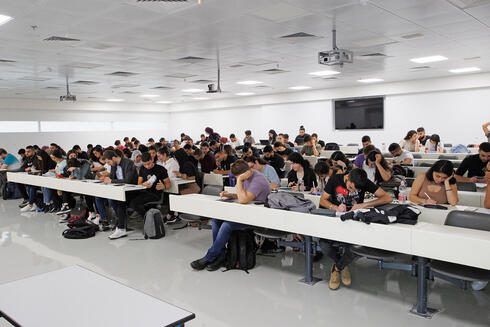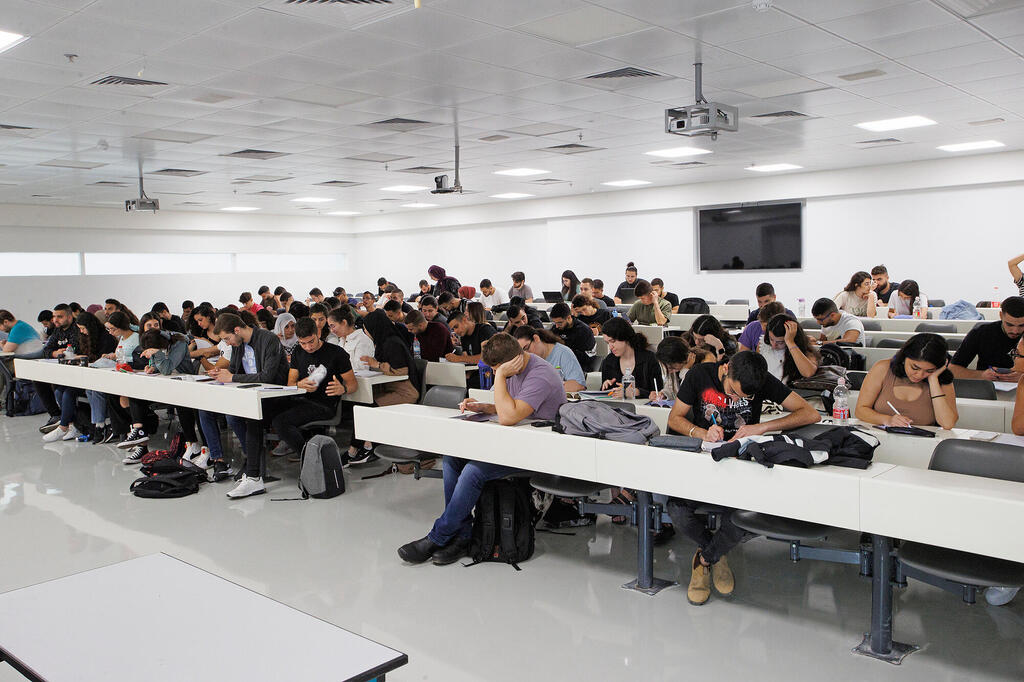
University of Haifa to establish a Faculty of Medicine after $54 million donation
In one of the largest donations in the history of Israeli academia, the faculty will be established in collaboration with Carmel Hospital and Clalit Health Services. With the establishment of medical faculties in Haifa, the Weizmann Institute and Reichman University, there will be 9 medical faculties in Israel
The University of Haifa laid the cornerstone this week for its medical school, which it plans to open for the 2025-2026 academic year. The new school, established in collaboration with Carmel Medical Center in Haifa and Clalit Health Services, is expected to enroll 60 students in its first phase and grow to 150, with studies lasting six years. The establishment of the faculty has been made possible due to a NIS 200 million ($54 million) donation from the Amir Family Foundation - one of the largest donations in the history of Israeli academia.
Israel currently has six medical faculties at the Hebrew University, Tel Aviv University, Ben-Gurion University, Bar-Ilan University, Ariel University, and the Technion. The Weizmann Institute and Reichman University plan to establish faculties, and once they and Haifa do so, the Open University will remain the only university in Israel without a medical faculty. Israel has 3.3 doctors per thousand people, below the OECD average of 3.5 per thousand. Due to the low number of medical students in Israel and increasing restrictions on the recognition of studies abroad, the situation is expected to worsen in the coming years. With this in mind, significant efforts are being made to increase the number of medical students in Israel from 820 in 2020 to 1,100 this year and 1,200 next year. The goal is for 2,000 students to start medical studies by 2030.
Carmel Medical Center and the Clalit Health Fund will provide clinical work for the students at Haifa University. The university has already applied for approval to the Council for Higher Education, and Professor Yossi Makori, Chairman of the council’s Planning and Budgeting Committee, participated in the cornerstone laying ceremony.
The ceremony was held as part of the university's 52nd Board of Governors meeting and the school will be named after Herta and Paul Amir, who are the largest donors to the University of Haifa. In addition to the NIS 200 million contributed by the Amir Family Foundation, the university has raised an additional NIS 50 million ($13.6 million).
Leading the project is future head of the faculty, Professor Haim Bitterman, the former head of Assuta-Ashdod Hospital and former Chief Physician of Clalit Health Services. He currently serves as the scientific director of the National Institute for Health Policy Research. Bitterman says that the school will include an advanced simulation center based on artificial intelligence and virtual reality technologies. "Today's doctors need to know how to treat people who are far away, on the other side of the computer screen," says Bitterman. Another aspect that will be emphasized at the school is cooperation with other healthcare providers.
"My goal as well as Paul’s (may his memory be a blessing) is to strengthen the State of Israel in general and the northern region in particular. Another medical school in the north is especially important in this challenging period," says Herta Amir. Scholarships and incentives will be used to help to retain the school's graduates in the north.
Paul Amir, a Holocaust survivor from Slovakia, was a member of Kibbutz Yehiam and after moving to the United States, established a real estate empire with his wife. The family’s philanthropic foundation has made significant donations to the Israel Museum and the Tel Aviv Museum of Art, and the family loans items from their art collection to various museums around the world. In 2007, they donated $10 million to the new wing of the Tel Aviv Museum after billionaire Sammy Ofer withdrew his donation.














